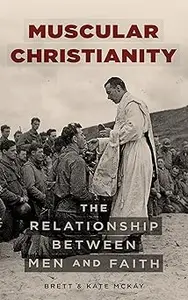Muscular Christianity The Relationship Between Men and Faith

Free Download Brett McKay, "Muscular Christianity: The Relationship Between Men and Faith"
English | ASIN : B07DRJ4MZ2 | 2018 | 97 pages | EPUB | 274 KB
Attend a Christian church service anywhere in the world this Sunday and take a look around at who’s sitting in the seats.
What will you see?
Almost certainly, more women than men. Women with husbands and families, but also married women attending without their husbands, widowed women, and single women, both young and old. You likely won’t see any husbands who are attending without their wives, or very many single guys.
Pew Research has found that, on average, Christian congregants across the world skew about 53% female, 46% male. In the U.S., surveys show a split that’s even wider: 61% women to 39% men (the gap occurs in every age category, and is thus not due to the fact that women live longer than men). In sheer numbers, what this means is that on any given Sunday in America, there are 13 million more women than men attending church.
Why is this?
Was there ever a time when the gender ratio of Christianity was equal? And if so, why did a disparity between male and female adherents develop?
These are fascinating questions, not only for Christians, but also for anyone interested in the influence of economics and sociology on religion, and who understands the enormous influence religion has had and continues to have on Western culture in general, and conceptions of manhood in particular.
To at least start to answer those questions, we’ve written a book on the subject called Muscular Christianity: The Relationship Between Men and Faith. It explores whether Christianity is inherently more feminine in nature than masculine, how it has become more feminine over time, the brief period in history in which a movement called "Muscular Christianity" flourished, and whether the characteristics of that movement can (and should) be brought back.
Read more
